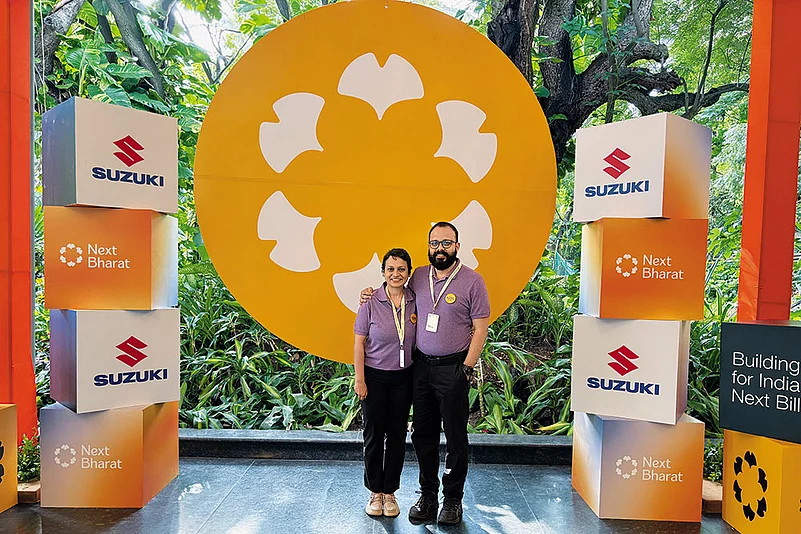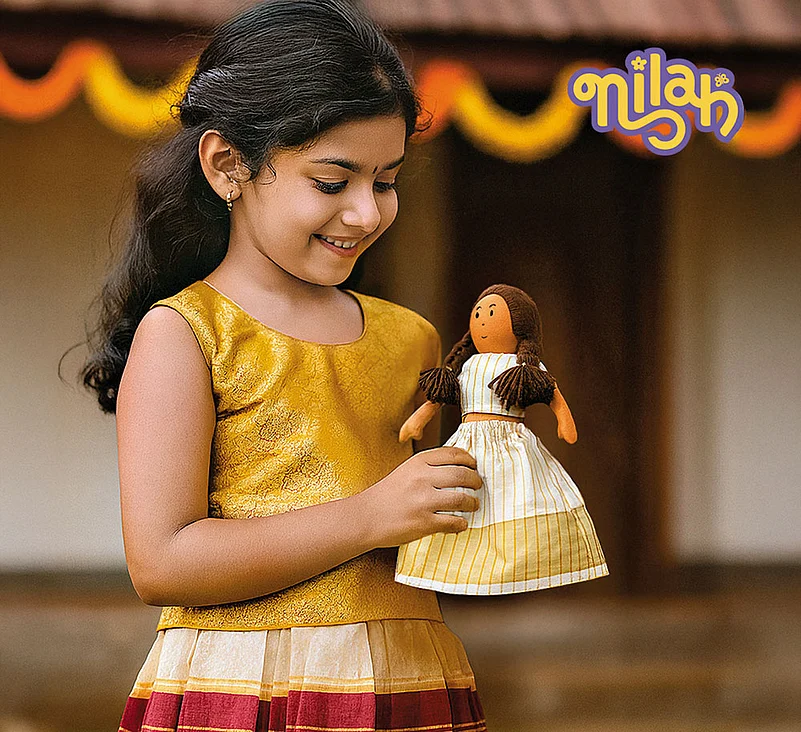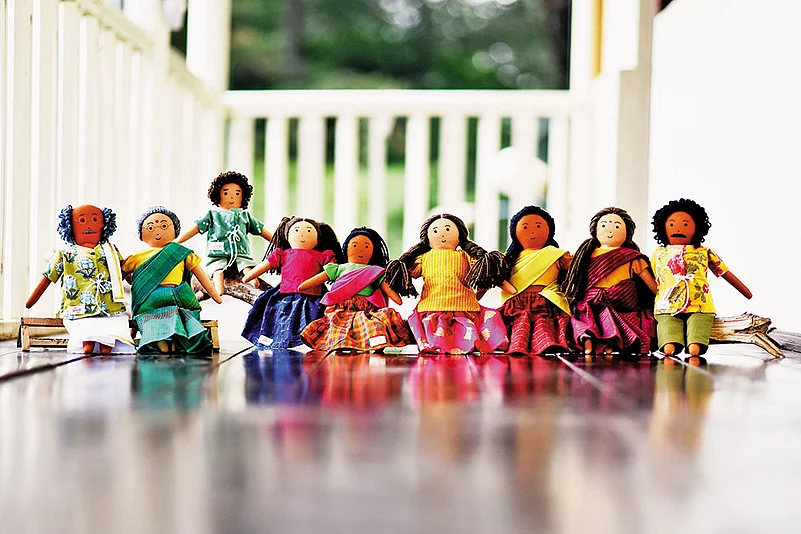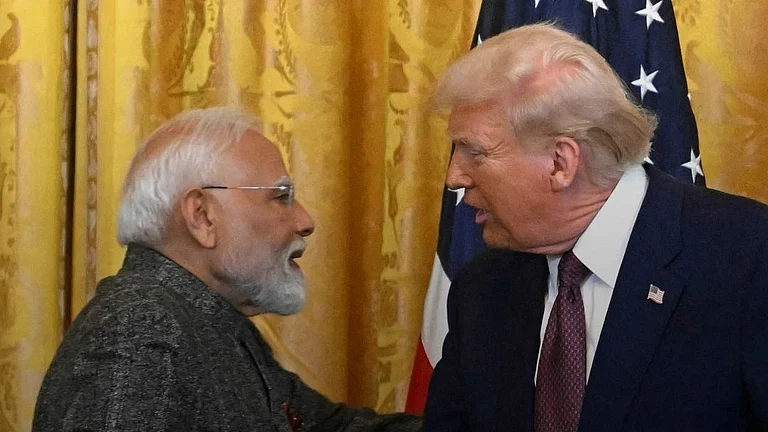Ten-year-old Nilah wears her hair in two thick braids. Dressed in a bright ikat print, she is about to set out to explore her family’s farm at the edge of the Nilgiris shola forest.
But Nilah is no ordinary child. She is a hand-stitched rag doll, crafted from scraps of fabric. Her family, also assembled from natural materials and dressed in kasavu saris and mundus, joins her on this journey.
Nilah and her friends and family form the cast of a story inspired by Indian lives and cultural heritage. All of them are made from unused textile surplus, stitched by local women in the Nilgiris. Behind the idea are Suhas Ramegowda and his wife Sunita, two former Chennai-based corporate professionals, who moved to the hills in 2017 in search of a slower and more meaningful life.
In 2019, the duo established the Indian Yards Foundation in Ooty, a social enterprise to upskill women from rural and indigenous communities in the Nilgiris through crafts. The Good Doll was established in 2023 as a for-profit initiative to support the foundation’s efforts. The duo started off with a small batch of fabric dolls, unsure if the idea would take off.
Over the next two years, they were awarded grants amounting to ₹25 lakh from the start-up incubator Nadathur S Raghavan Centre for Entrepreneurial Learning and the Tamil Nadu Start-up and Innovation Mission, and raised ₹1 crore in equity through high net-worth individuals and social-impact funds Rainmatter and Villgro. On Season 4 of the reality show Shark Tank India, the start-up secured another ₹1 crore.

Play with Purpose
According to Suhas, who holds a Master’s degree in business development, the venture’s strength lies in its commitment to diversity and sustainability. The dolls are designed with varied skin tones and body-positive features, giving children toys they can truly identify with.
Their clothes draw from local fabrics and traditions and are made by a team of 95 women artisans using recycled textiles, adding cultural authenticity to play. It is this blend of planet-friendly materials and inclusivity that Suhas calls the real USP of The Good Doll.
On the business side, the venture is seeing steady growth. Sales in 2023–24 were ₹70 lakh, up from ₹17.5 lakh the previous year. In the current fiscal, this number was ₹50 lakh as of October, with projected revenues between ₹1.2 crore and ₹1.5 crore by year-end. It aims to reach ₹3 crore in 2025–26, ₹5 crore the year after and ₹7 crore in 2027–28.
The initiative does not foresee an urgent need to raise external funds in the near future and Suhas stresses that securing stability, production consistency and community trust are more important at this stage than rapid financial growth.
Should The Good Doll choose to scale over the next two to three years, it may seek a modest ₹15–20 lakh to improve infrastructure, set up a small training-and-production unit and upgrade logistics and packaging, says Suhas, adding that funding would come only from ethical investors or social-impact grants, not traditional venture capital.

Against the Odds
Building a business in the Nilgiris comes with more than its fair share of practical hurdles. Infrastructure is the first. Erratic electricity, unreliable transport and patchy internet routinely stalls production; sometimes finished dolls sit for days before they are shipped out.
Finance was equally tough. No angel investor would wait to back a doll-making venture in a rural hamlet, says Suhas. Banks demanded collateral, grants came with paperwork. So they started small—dipping into savings and recycling material, less as a sustainability choice, but as a necessity.
Visibility was another uphill climb. With no marketing team or budget, the brand grew through word of mouth, local fairs and consistent storytelling on social media. Every post connecting urban buyers to the local artisans required effort and technical training.
And finally, there was scaling, which required its own balancing act. “Handmade comes with its own rhythm…it’s beautiful, but it’s also slow, unpredictable and deeply human. One of our biggest challenges has been finding that balance between scale and soul,” says Sunita.
Crafting the Future
For Suhas, the mission remains clear: to build sustainable fabric dolls and stories that reflect real Indian childhoods, in skin tones, clothes and festivals, while providing dignified livelihoods to rural and indigenous women in the Nilgiris.
Sunita envisions The Good Doll eventually evolving into a network of locally run craft units across rural India, each self-sustained and locally managed. “The idea is that every cluster of women should eventually be able to design, create and run their own verticals,” she says.
Rainmatter’s investment head, Dinesh Pai, says supporting The Good Doll was less about returns and more about values. “India has so many entrepreneurs who are solving various problems, and not all of them will be similar. The Good Doll is one such business, where the opportunity to do good for the community comes first. We need more examples like them rooted in communities, meeting local needs.”











